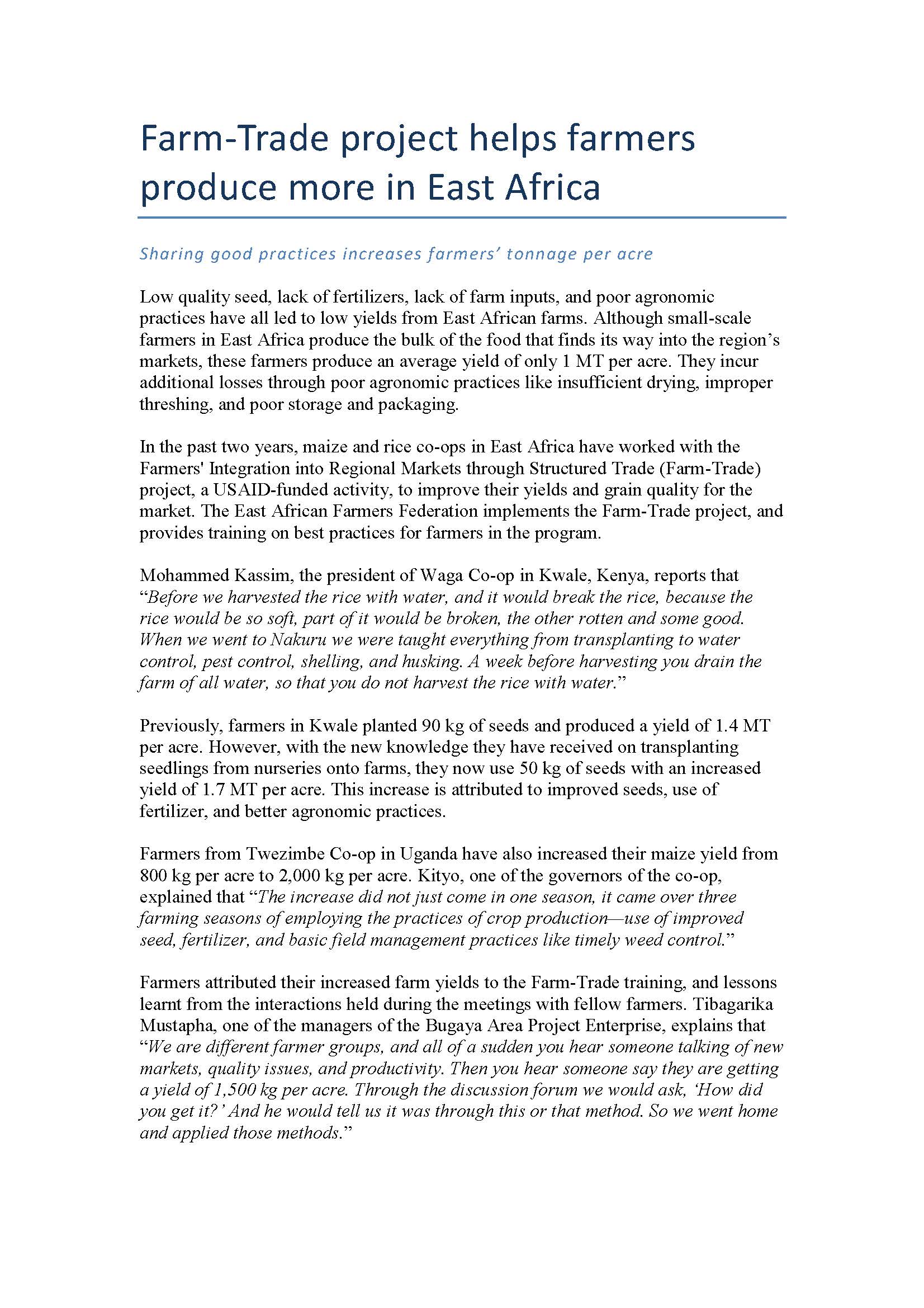Home » Farm-Trade project helps farmers produce more in East Africa
Sharing good practices increases farmers’ tonnage per acre
Low quality seed, lack of fertilizers, lack of farm inputs, and poor agronomic practices have all led to low yields from East African farms. Although small-scale farmers in East Africa produce the bulk of the food that finds its way into the region’s markets, these farmers produce an average yield of only 1 MT per acre. They incur additional losses through poor agronomic practices like insufficient drying, improper threshing, and poor storage and packaging.
In the past two years, maize and rice co-ops in East Africa have worked with the Farmers' Integration into Regional Markets through Structured Trade (Farm-Trade) project, a USAID-funded activity, to improve their yields and grain quality for the market. The East African Farmers Federation implements the Farm-Trade project, and provides training on best practices for farmers in the program.
Mohammed Kassim, the president of Waga Co-op in Kwale, Kenya, reports that “Before we harvested the rice with water, and it would break the rice, because the rice would be so soft, part of it would be broken, the other rotten and some good. When we went to Nakuru we were taught everything from transplanting to water control, pest control, shelling, and husking. A week before harvesting you drain the farm of all water, so that you do not harvest the rice with water.”
Previously, farmers in Kwale planted 90 kg of seeds and produced a yield of 1.4 MT per acre. However, with the new knowledge they have received on transplanting seedlings from nurseries onto farms, they now use 50 kg of seeds with an increased yield of 1.7 MT per acre. This increase is attributed to improved seeds, use of fertilizer, and better agronomic practices.
Farmers from Twezimbe Co-op in Uganda have also increased their maize yield from 800 kg per acre to 2,000 kg per acre. Kityo, one of the governors of the co-op, explained that “The increase did not just come in one season, it came over three farming seasons of employing the practices of crop production—use of improved seed, fertilizer, and basic field management practices like timely weed control.”
Farmers attributed their increased farm yields to the Farm-Trade training, and lessons learnt from the interactions held during the meetings with fellow farmers. Tibagarika Mustapha, one of the managers of the Bugaya Area Project Enterprise, explains that “We are different farmer groups, and all of a sudden you hear someone talking of new markets, quality issues, and productivity. Then you hear someone say they are getting a yield of 1,500 kg per acre. Through the discussion forum we would ask, ‘How did you get it?’ And he would tell us it was through this or that method. So we went home and applied those methods.”
Issuing Country
Date
Monday, January 25, 2016 - 12:45pm








Comment
Make a general inquiry or suggest an improvement.